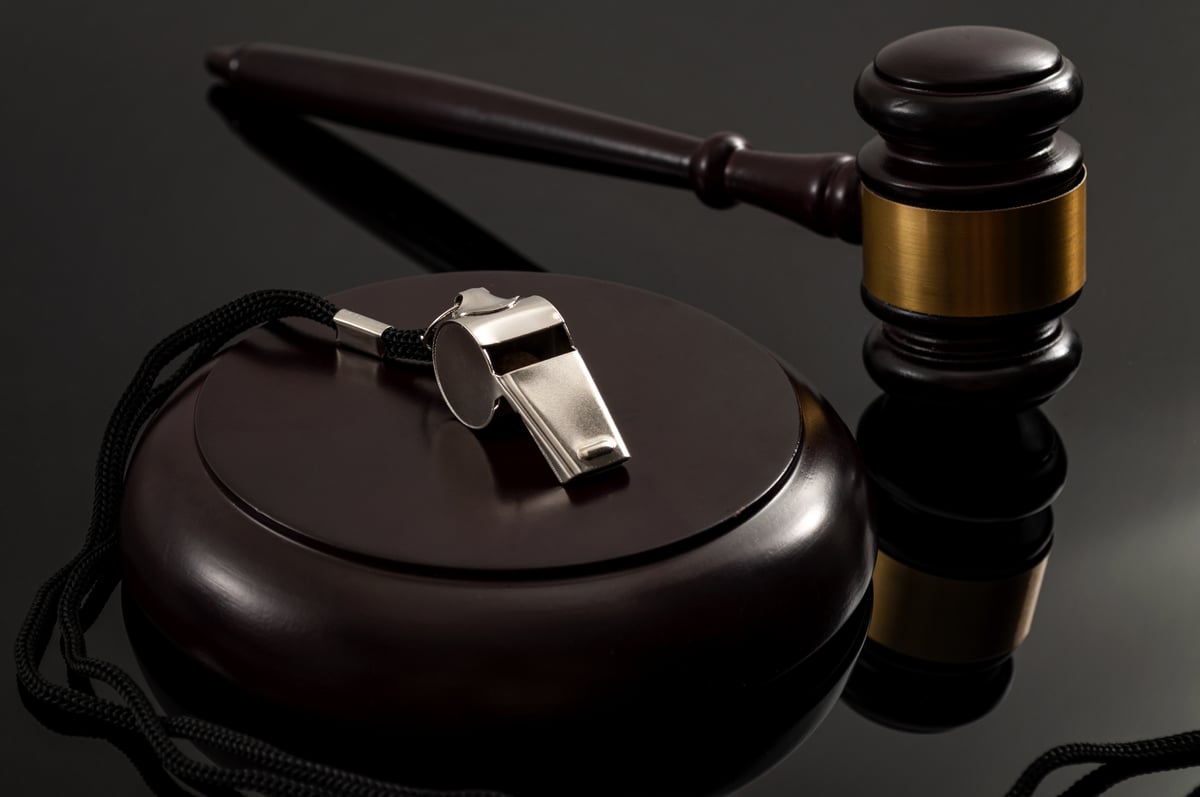
Most U.S. businesses have a lot of autonomy, operating with minimal day-to-day government oversight. To protect the health and safety of workers and the public at large, prevent fraud, and discourage corruption, lawmakers have enacted “whistleblower” statutes on both federal and state levels. These laws provide protection and incentives for workers to report wrongdoing in the workplace.
New Jersey Conscientious Employee Protection Act (CEPA)
New Jersey has one of the country’s most comprehensive, protective state whistleblower laws. It encourages workers to report conduct by an employer or co-worker that is fraudulent or otherwise illegal, which may otherwise go unnoticed or unreported for many years.
The New Jersey Conscientious Employee Protection Act (CEPA) protects an employee if they
- have reason to believe that an activity, policy, or practice is a violation of regulation or law and
- discloses or threatens to disclose that action to authorities.
CEPA also protects employees from being forced to participate in an activity that they believe to be unlawful or against public policy.
Employees may not be fired, terminated, or otherwise retaliated against for reporting what they know or believe in good faith to be an illegal activity or for refusing to engage in an activity they believe to be illegal. CEPA prohibits all retaliatory acts, including transferring a whistleblowing employee to less desirable shifts or passing them over for promotion or other opportunities.
To Whom Does CEPA Apply?
CEPA protects nearly all New Jersey workers. Employers with more than 10 employees are required to distribute to employees and prominently post in the workplace a written or electronic notice of these protections. This notice must appear in English, Spanish, and any other language is spoken by a majority of the employees at a particular job site.
Some employees are tasked specifically with ensuring a company’s reporting and other practices are legally compliant and sufficient. Even these “watchdog” employees are protected by CEPA if they blow the whistle on fraudulent, illegal, or otherwise improper practices by the corporation or individual employees.
What Kinds of “Wrongdoing” Do Whistleblowers Report?
Employees often accidentally uncover information about improper wage and hour practices, including improper withholding of employee wages, wage theft, wage discrimination, failure to comply with prevailing rate laws, and more. Other times, employees witness discriminatory hiring or disciplinary practices, sexual harassment, workplace assault, hostile work environments, safety violations, or abusive work practices.
Employees may discover other types of violations that vary by industry. Workers may witness business practices or production decisions that result in a product being potentially unsafe for the public to use or consume. Financial workers may discover embezzlement, tax underpayment, illegal imports or exports, and other violations. Healthcare workers may suspect private insurance fraud, Medicare or Medicaid fraud, misuse of resources, or intentionally fraudulent diversion of federal and state emergency relief funds related to COVID-19.
What Can I Do If I Suspect Wrongdoing?
CEPA protects employees who believe in good faith at the time of their report that illegal or fraudulent activity is occurring in their workplace. Many companies have an internal reporting process. When a whistleblower uses this process to report suspected wrongdoing, the company may investigate and act appropriately to end the activity and resolve its consequences. If a problem is widespread in a company, however, or if the employer takes no action in response to an internal complaint, an employee might choose to file a NJ whistleblower lawsuit.
Once a whistleblower files a lawsuit in New Jersey courts, state investigators review it and decide whether to intervene and take over the prosecution of the case. The state considers the potential damages that may be recovered, whether the issues in question involve public health or safety, and the amount of government resources that pursuing the case would require.
Compensation to Incentivize Whistleblowers
An individual who files a New Jersey whistleblower claim can continue with their own lawsuit regardless of whether the government participates. If the government does choose to intervene and is successful in prosecuting its claim, the plaintiff may be entitled to a portion of the damages recovered by the state.
A plaintiff who successfully proves a private lawsuit for discrimination or retaliation in violation of CEPA may be able to obtain a variety of types of damages. These can include compensation for lost wages, back pay, front pay, and interest as well as reinstatement to their former position and benefits, if applicable. A successful whistleblower may also be awarded attorneys’ fees and, in extraordinary cases, punitive damages.
An experienced New Jersey employment lawyer can help an employee understand their options and determine how they might be able to recover compensation or pursue reinstatement. If you suspect your employer is engaging in illegal activity or have evidence of wrongdoing in the workplace, it’s wise to speak to a lawyer before taking further independent action. Consulting with an experienced attorney can help you protect yourself as you pursue justice and secure all forms of compensation that may be available to you.


.svg)